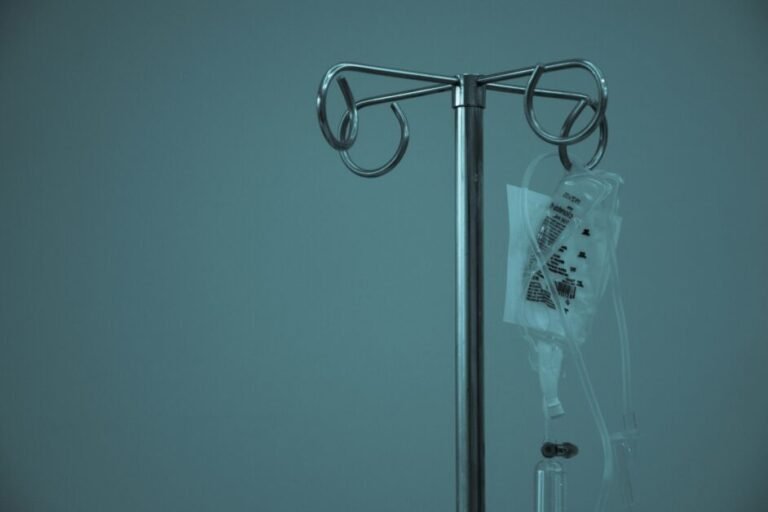Home Remedies for High Blood Pressure: Simple Solutions for a Healthier Heart
High blood pressure, also known as hypertension, is a common condition in which the force of the blood against the walls of the arteries is consistently too high. This can lead to serious health problems, including heart disease, stroke, and kidney failure. High blood pressure often has no symptoms, which is why it is often referred to as the “silent killer.” It is important to have your blood pressure checked regularly, as it can be managed with lifestyle changes and, in some cases, medication.
There are two types of high blood pressure: primary (essential) hypertension and secondary hypertension. Primary hypertension is the most common type and develops over time with no identifiable cause. Secondary hypertension is caused by an underlying condition, such as kidney disease, hormonal disorders, or certain medications. Understanding the type of high blood pressure you have is important for determining the best course of treatment.
Lifestyle Changes to Lower Blood Pressure
Making lifestyle changes is an important part of managing high blood pressure. One of the most effective ways to lower blood pressure is to maintain a healthy weight. Being overweight or obese puts extra strain on the heart, leading to higher blood pressure. Eating a balanced diet that is low in sodium and high in fruits, vegetables, and whole grains can also help lower blood pressure. Additionally, limiting alcohol consumption and quitting smoking can have a positive impact on blood pressure.
Regular physical activity is another key component of lowering blood pressure. Engaging in aerobic exercise, such as walking, swimming, or cycling, for at least 30 minutes most days of the week can help lower blood pressure. Managing stress through relaxation techniques, such as deep breathing, meditation, or yoga, can also have a positive impact on blood pressure levels.
Dietary Changes to Manage High Blood Pressure
Diet plays a crucial role in managing high blood pressure. One of the most important dietary changes to make is reducing sodium intake. Consuming too much sodium can cause the body to retain fluid, which increases blood pressure. It is recommended to limit sodium intake to no more than 2,300 milligrams per day, or even lower for those with high blood pressure.
In addition to reducing sodium, increasing potassium intake can also help lower blood pressure. Potassium helps the body get rid of sodium and eases tension in the blood vessel walls. Foods rich in potassium include bananas, oranges, spinach, and sweet potatoes. Eating a diet that is rich in fruits, vegetables, and whole grains while limiting processed and high-fat foods can also help manage high blood pressure.
Herbal Remedies for High Blood Pressure
In addition to lifestyle and dietary changes, some people turn to herbal remedies to help manage high blood pressure. While more research is needed to determine the effectiveness of these remedies, some herbs have shown promise in lowering blood pressure. For example, garlic has been found to have a modest effect on reducing blood pressure. Other herbs that are commonly used for high blood pressure include hawthorn, hibiscus, and celery seed.
It is important to consult with a healthcare professional before using herbal remedies for high blood pressure, as they can interact with medications and may not be safe for everyone. Additionally, herbal remedies should not be used as a substitute for prescribed medications or lifestyle changes.
Stress Management Techniques for Lowering Blood Pressure
Stress can have a significant impact on blood pressure levels. When we are stressed, our bodies release adrenaline and cortisol, which can cause our hearts to beat faster and our blood vessels to constrict. Over time, this can lead to high blood pressure. Therefore, managing stress is an important part of lowering blood pressure.
There are many techniques that can help manage stress and lower blood pressure. Deep breathing exercises, meditation, and progressive muscle relaxation are all effective ways to calm the mind and body. Engaging in activities that bring joy and relaxation, such as spending time with loved ones, practicing hobbies, or spending time in nature, can also help reduce stress levels.
Exercise and Physical Activity for a Healthier Heart
Regular physical activity is essential for maintaining a healthy heart and lowering blood pressure. Exercise helps strengthen the heart muscle, improve circulation, and reduce the risk of developing other health conditions that can contribute to high blood pressure, such as obesity and diabetes.
Aerobic exercise, such as walking, jogging, swimming, or cycling, is particularly beneficial for lowering blood pressure. Aim for at least 30 minutes of moderate-intensity aerobic exercise most days of the week. In addition to aerobic exercise, strength training and flexibility exercises can also contribute to overall heart health.
Monitoring and Managing High Blood Pressure at Home
Monitoring blood pressure at home is an important part of managing high blood pressure. Home monitoring allows individuals to track their blood pressure over time and provides valuable information for healthcare providers. There are many home blood pressure monitors available for purchase that are easy to use and provide accurate readings.
In addition to monitoring blood pressure at home, it is important to follow the treatment plan outlined by a healthcare provider. This may include taking prescribed medications as directed, making lifestyle changes, and attending regular check-ups. It is also important to communicate any concerns or changes in symptoms to a healthcare provider.
In conclusion, high blood pressure is a common condition that can have serious health consequences if left unmanaged. Understanding the causes and types of high blood pressure is important for determining the best course of treatment. Lifestyle changes, including dietary modifications, stress management techniques, and regular physical activity, are essential for lowering blood pressure. In some cases, herbal remedies may also be used under the guidance of a healthcare professional. Monitoring blood pressure at home and following a treatment plan outlined by a healthcare provider are important steps in managing high blood pressure and maintaining overall heart health.







